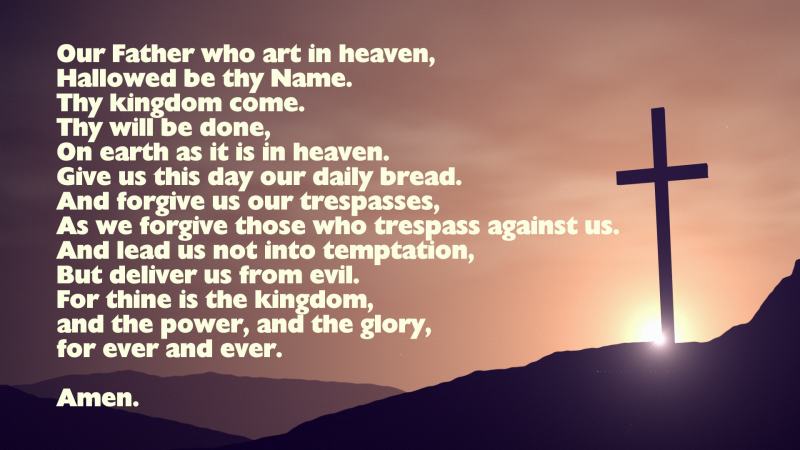"Give Us This Day Our Daily Bread"
Commentary on the Lord's Prayer
"Give us this day our daily bread" is the forth of the seven petitions in the Lord's prayer (the first three address God, the second four are prayers related to our needs and concerns). We need God in all areas of our life (physical, spiritual and mental), and this is a daily need. We need to come back to God regularly, each day- indeed, many times each day and many ways, for we can quickly become independent and self-seeking. Jesus reiterates this daily dependency when he exhorts us to not "worry about tomorrow, for tomorrow will worry about itself" (Math 6:34, NIV)
In the Lord's Prayer, the first petition is for daily bread. No one can worship God or love his neighbor on an empty stomach.
Woodrow Wilson (28th President of the USA)
resources on this page
Adam Clarke's on "Give us this day..."
Albert Barnes on "Give us this day..."
(Commentary on Matthew chapter 6, verse 11)
read more commentaries and studies on the Lord's Prayer in our In-Depth Commentary Section
Matthew Henry
on "Give Us This Day Our daily Bread"
4. Give us this day our daily bread. Because our natural being is necessary to our spiritual well-being in this world, therefore, after the things of God's glory, kingdom, and will, we pray for the necessary supports and comforts of this present life, which are the gifts of God, and must be asked of him, Ton arton epiousion--Bread for the day approaching, for all the remainder of our lives. Bread for the time to come, or bread for our being and subsistence, that which is agreeable to our condition in the world (Pr 30:8), food convenient for us and our families, according to our rank and station.
Every word here has a lesson in it: (1.) We ask for bread; that teaches us sobriety and temperance; we ask for bread, not dainties, not superfluities; that which is wholesome, though it be not nice. (2.) We ask for our bread; that teaches us honesty and industry: we do not ask for the bread out of other people's mouths, not the bread of deceit (Pr 20:17), not the brad of idleness (Pr 31:27), but the bread honestly gotten. (3.) We ask for our daily bread; which teaches us not to take thought for the morrow (Mt 6:34), but constantly to depend upon divine Providence, as those that live from hand to mouth. (4.) We beg of God to give it us, not sell it us, nor lend it us, but give it. The greatest of men must be beholden to the mercy of God for their daily bread, (5.) We pray, "Give it to us; not to me only, but to others in common with me." This teaches us charity, and a compassionate concern for the poor and needy. It intimates also, that we ought to pray with our families; we and our households eat together, and therefore ought to pray together. (6.) We pray that God would give us this day; which teaches us to renew the desire of our souls toward God, as the wants of our bodies are renewed; as duly as the day comes, we must pray to our heavenly Father, and reckon we could as well go a day without meat, as without prayer.
Source: Matthew Henry's Commentary on the Whole Bible Volume V (Matthew to John)
Adam Clarke on "Give Us This Day Our Daily Bread"
Verse 11. Give us this day our daily bread] The word EPIOUSIAN has greatly perplexed critics and commentators. I find upwards of thirty different explanations of it. It is found in no Greek writer before the evangelists, and Origen says expressly, that it was formed by them, ALLEOIKEPEPLASQAIUPOTWNEUAGGELISTWN. The interpretation of Theophylact, one of the best of the Greek fathers, has ever appeared to me to be the most correct, ARTOSEPI THOUSIAKAIAUSTASEIHMWNAUTARKHS, Bread, sufficient for our substance and support, i.e. That quantity of food which is necessary to support our health and strength, by being changed into the substance of our bodies. Its composition is of EPI and OUSIA, proper or sufficient for support. Mr. Wakefield thinks it probable, that the word was originally written EPIOUSIAN, which coalesced by degrees, till they became the EPIOUSION of the MSS. There is probably an allusion here to the custom of travellers in the east, who were wont to reserve a part of the food given them the preceding evening to serve for their breakfast or dinner the next day. But as this was not sufficient for the whole day, they were therefore obliged to depend on the providence of God for the additional supply. In Lu 15:12, 13, OUSIA signifies, what a person has to live on; and nothing can be more natural than to understand the compound EPIOUSIOS, of that additional supply which the traveller needs, to complete the provision necessary for a day's eating, over and above what he had then in his possession. See Harmer.
The word is so very peculiar and expressive, and seems to have
been made on purpose by the evangelists, that more than mere
bodily nourishment seems to be intended by it. Indeed, many of
the primitive fathers understood it as comprehending that daily
supply of grace which the soul requires to keep it in health and
vigour: He who uses the petition would do well to keep both in
view. Observe 1. God is the author and dispenser of all temporal
as well as spiritual good. 2. We have merited no kind of good
from his hand, and therefore must receive it as a free gift: Give
us, daily for support; we are not
permitted to ask any thing for to-morrow: give us to-day. 4. That
petition of the ancient Jews is excellent: "Lord, the necessities
of thy people Israel are many, and their knowledge small, so that
they know not how to disclose their necessities: Let it be thy
good pleasure to give to every man, what sufficeth for food!"
Thus they expressed their dependence, and left it to God to
determine what was best and most suitable. We must ask only that
which is essential to our support, God having promised neither
luxuries nor superfluities.
Source: Adam Clarke's Commentary on the Bible
Next: "Forgive us our trespasses..."
Verse 11. Give us this day, etc. The word bread here denotes, doubtless, everything necessary to sustain life, Mt 4:4, De 8:3. This petition implies our dependence on God for the supply of our wants. As we are dependent on him one day as much as another, it was evidently the intention of our Saviour that prayer should be offered every day. This is, moreover, expressed in the plural number-- give us. It is evidently, therefore, intended to be used by more than one, or by some community of people. No community or congregation can meet every day for worship but families. It is therefore evident that this prayer is a strong implied command for daily family prayer. It can nowhere else be used so as fully to come up to the meaning of the original intention; and nowhere else can it be breathed forth with so much propriety and beauty as from the lips of a father, the venerable priest of his household, and the pleader with God for those rich blessings which a parental bosom desires on his beloved offspring.
(z) "daily bread" Prov 30:8, Is 33:16
Source: Barnes' New Testament Notes
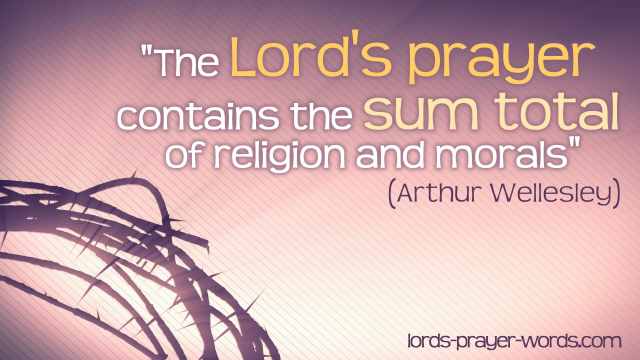
about the commentary writers
In this section you can discover more about the Lord's Prayer through some of the most notable exponents in biblical interpretation. 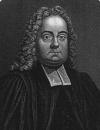 • Matthew Henry (1662-1714) was a non-conformist English clerygman. His commentaries on the scriptures are intended as a devotional guide to the Bible, rather than as a critical study.
• Matthew Henry (1662-1714) was a non-conformist English clerygman. His commentaries on the scriptures are intended as a devotional guide to the Bible, rather than as a critical study.
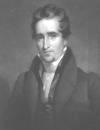 • Albert Barnes (1798-1870) was a Presbyterian minister and American theologian. His 'New Testament Notes' are invaluable in helping to understand difficult passages of scripture. Barnes frequently references the original Greek to reveal the meaning of the text.
• Albert Barnes (1798-1870) was a Presbyterian minister and American theologian. His 'New Testament Notes' are invaluable in helping to understand difficult passages of scripture. Barnes frequently references the original Greek to reveal the meaning of the text.
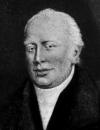 • Adam Clarke (1769 or 62 to 1832) was a Methodist minister and biblical theologian. His extensive commentary on the New Testament, at around 6000 pages long, is one of the longest works on the bible ever written by one person.
• Adam Clarke (1769 or 62 to 1832) was a Methodist minister and biblical theologian. His extensive commentary on the New Testament, at around 6000 pages long, is one of the longest works on the bible ever written by one person.

